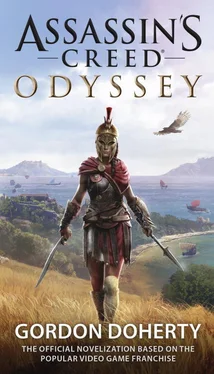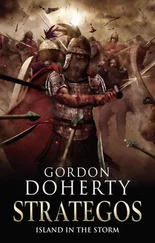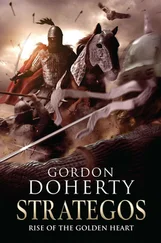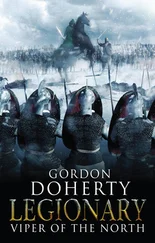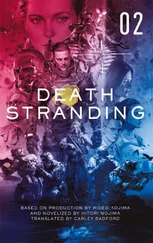Alkibiades:Cunning and hedonistic ward to Perikles, the most powerful man in Athens.
Anthousa:The senior Hetaera at the Temple of Aphrodite in Korinthia.
Archidamos:The senior of Sparta’s two kings.
Aristeus:The Korinthian strategos.
Aristophanes:Perhaps Athens’s most famous comic playwright.
Aspasia:A brilliant thinker and speaker, and partner to Athens’s leader Perikles, Aspasia enjoys a place at the center of Athens’s vibrant intellectual community.
Barnabas:Loyal friend to Kassandra, a well-traveled seafarer and onetime mercenary with a passion for tall tales.
Brasidas:One of Sparta’s greatest and bravest generals, Brasidas was also an accomplished statesman with the noble objective to help end the war.
Chrysis:A Cultist priestess who raised Deimos to become a weapon of the Cult of Kosmos.
Deimos:Raised within the Cult of Kosmos to become their hero and champion, Deimos is a brutal, living weapon whose extraordinary powers give him a fearsome reputation.
Diona:A Cultist from Kythera.
Dolops:Son of Chrysis and a priest at the Sanctuary of Asklepios.
Elpenor:A rich, powerful businessman from Kirrha.
Erinna:One of Anthousa’s Hetaerae.
Euneas:Navarchos of the Naxian fleet.
Euripides:Famous Athenian tragedian.
Hermippos:A playwright and poet… with dark connections.
Herodotos:“The Father of History,” a chronicler of facts and events, and yet a fine storyteller, who decides to accompany Kassandra on her journey.
Hippokrates:Widely thought of as the father of modern medicine, Hippokrates is famous for his important and lasting contributions to the field.
Hyrkanos:An Athenian-hired mercenary, operating in the Megarid.
Ikaros:Kassandra’s most loyal companion since he was a mere eaglet.
Kassandra:A hardened and formidable misthios.
Kleon:The staunch power-hungry rival of Perikles who believes Athens needs to take an aggressive stance in the war.
Leonidas:Sparta’s legendary king, and Kassandra’s grandfather, best known for leading his three hundred warriors into the battle of Thermopylae.
Lydos:A Helot slave in the service of Sparta’s two kings.
Markos:A shady Kephallonian “businessman.”
Myrrine:Kassandra’s mother, a fierce Spartan.
Nikolaos:Kassandra’s father, a fierce, ruthless general unshakably loyal to Sparta.
Oracle of Delphi:The Oracle, consulted by commoners and the most powerful people of Greece alike, delivers prophecies and insights that can turn the tides of history.
Pausanias:The junior of Sparta’s two kings.
Perikles:The elected leader of Athens.
Phoibe:A young Athenian orphan adopted by Kassandra.
Pythagoras:Legendary philosopher, political theorist and geometrician.
Roxana:One of Anthousa’s Hetaerae.
Silanos:A Cultist who rose to power in Paros thanks to his great naval skill and wealthy supporters.
Sokrates:Famous Athenian philosopher patronized by the intellectual elite of Athens.
Sophocles:Famous Athenian tragedian.
Stentor:Nikolaos’s adopted son and a Spartan officer of some repute.
Testikles:The talented and inebriate pankration champion of Sparta.
The Cyclops:Powerful criminal tyrant of Kephallonia.
The Monger:A Cultist who leads the underground business market, feared for his torture methods.
Thrasymachos:Sokrates’s intellectual sparring partner.
Thucydides:One of Athens’s key generals during the Peloponnesian War and one of the first historians to record an objective account of the struggle.
GLOSSARY OF FOREIGN TERMS
Abaton A hall in the Sanctuary of Asklepios where the sick slept.
Adyton The innermost shrine of a Greek temple.
Agoge Sparta’s famous school for boys, which forced them to weather extreme hardship and foster a great love of the state from the age of seven. Boys would remain tied to the school in many ways until they were thirty, when they would finally be considered full-blooded Spartiates.
Andron The main room in a Greek home for entertaining.
Archon Leader.
Auloi (sing. aulos )Spartan war pipes.
Bakteriya The distinctive T-shaped staff held by Spartan officers.
Enomotia A “sworn band” of thirty-two Spartan soldiers who were often related or had close ties. They would camp, eat and march together.
Ephors A group of five elected Spartan statesmen. It was the ephors’ responsibility to declare war, to determine how many of the rare Spartan regiments would march to battle, and to hold the two kings of Sparta to account.
Exomis A one-shouldered tunic, usually worn by men.
Gerousia The Spartan council of elders.
Hetaerae Esteemed courtesans who served the goddess Aphrodite.
Himation An old-style garment worn by men that left most of the chest bare.
Hippeis The Spartan royal guard.
Hoplite The heavy infantryman of classical Greece.
Keleustes The rowing master aboard a trireme.
Khaire Welcome.
Kothon A mug from which Spartans used to drink their beloved black broth.
Kybernetes The helmsman on a galley.
Lochagos The officer in charge of a lochos.
Lochos A Spartan regiment. Ever more rare in the time of our story.
Malákas! Asshole!
Misthios A mercenary.
Navarchos Admiral.
Pankration A sport similar to modern boxing and wrestling.
Peltast A lightly armed infantryman who would carry a supply of javelins and harry the enemy from the edge of battle.
Porpax A leather or metal sleeve inside a shield. Wearers would slide their arm into this and their shield would effectively become part of them.
Skiritos A special Spartan levy of free but noncitizen subjects who lived near the Skiritis Mountains. They excelled at scouting and serving as outlying night watchmen, as well as performing a vital role as support troops in battle.
Stola A long, pleated dress.
Strategos A military governor.
Strigil An implement used to exfoliate the skin after bathing.
Symposiarch The person in charge of orchestrating a symposium.
Taxiarchos The officer in charge of a taxiarchy.
Taxiarchy An Athenian regiment (in our story, though in reality probably all Greek city-states used the term at some point).
Читать дальше
